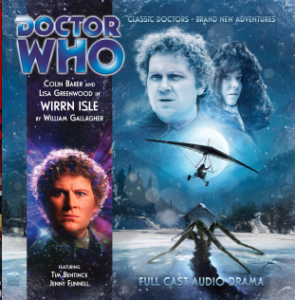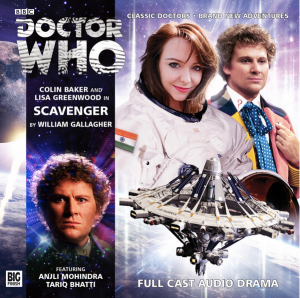Pull up a seat. Let me just tap this app and set the wifi iKettle boiling. I wanna tell you a story.
But it’s specifically that, a story. Not a plot. If you’re in a hurry and you don’t mind missing out on the biscuits, there is a short description of the difference which gets quoted a lot by writers and which goes roughly thisaway:
The king died and then the queen died (story).
The king died and then the queen died of grief (plot)
EM Forster said that. Everybody agrees, you miss nothing but ginger nuts if you have to leave.
Except, I don’t agree.
Maybe it’s just semantics but I would take those same two sentences and I would swap the parenthetical descriptions:
The king died and then the queen died (plot)
The king died and then the queen died of grief (story)
Truly, I stand alone here, I know it. But it’s a stance that comes from a lot of years reading a lot of thrillers and writing a few too. The ones that fail, for me, are those that have kings dying, queens dying, everybody dying and it doesn’t matter, I don’t care whether they die because I just do not care at all. That’s a plot. You can make it twisty, you and be brilliantly clever and you can definitely create fantastic moments, but the plot is a sequence of events. A story is where I care. The king dying and then the queen dying is a boring school history lesson. Her dying of grief is a story because now I care. Mind you, our two lead characters have just been bumped off so there’s not a whole lot of story left.
Anyway.
To this day, a key failing in my writing is that I fear you will get bored so I run, run, run through story, I throw things at you and when I reckon you can’t have quite caught it yet, bang, I throw you something else. My latest Doctor Who, Scavenger, is practically real-time not because I wanted the benefits of that but because I would not pause for breath. A theatre producer I admire recently told me to slow my writing down. This week a very witty and hugely entertaining event producer told me she thought I had far too much going on in my The Blank Screen productivity course. They’re both right, I agree completely, I am just struggling to beat this compulsion. I’ll get there.
And I have got to the point where I know the truth about plots. Many years ago, I argued with Alan Plater that plot is crucial. I said that you’ve got to have things happening all the time – no change there, then – and it’s got to be great high stakes, it must be urgently vital. Plot is everything. Why else, how else would you get engrossed in a story? I’m paraphrasing here, but Alan replied with what may be the best advice I’ve had in writing. He said:
No.
I’ve quoted him often.
Many girlfriends have quoted him back to me.
One of the most delicious things in life is when someone changes your mind. I vividly remember at college going to meet an old school friend at her university and disagreeing about something. I also remember having the most gigantic crush on her which is not in any way relevant and I don’t see why you brought it up. Anyway. Whatever this thing was, I said it and she said “But…”. At the start of her sentence, I believed one particular thing to be fully, entirely and irrevocably true. At the end of her short sentence, I knew that was bollocks and that she was fully, entirely and irrevocably right. I think of it and her often, I wonder if she even realised how much I enjoyed that moment.
Alan was equally fully, entirely and irrevocably right. It just took me years and my writing many scripts for him to change my mind.
I’m not going to claim I can tell you exactly what his opinion was: Alan died nearly four years ago now and I will always remain upset. But I can tell you what my opinion has become, and that opinion was shaped by him. My opinion goes thisaway:
Characters come first. Characters come above everything. Because if I don’t find those characters interesting, there is no plot in the world that could make me give a toss about what happens to them.
I would take one small step back from that and say that dialogue is supreme: if I don’t believe what someone is saying – if I don’t believe a real human being would say those words in that way – then I don’t believe the character and I cannot ever get interested in them.
If I knew what made a character interesting, I think I’d be initially elated and then a bit bored: finding them is part of writing and while a checklist of Things To Make Characters Real and Alive would be handy, I’m relieved that there is no such thing.
Alan was spectacularly good at slowing things down, at actually making it look as if there were no plot at all, that nothing was happening. It is a skill and a talent whose result is so quiet and low key that it somehow doesn’t get shouted about. But I said spectacular and I mean it: by the end of a plot-free Alan Plater piece, the most enormous things have happened. I long for you to read his novel Misterioso or for the BBC to finally release the not-as-good-but-still TV version of it on DVD. Because every conventional plot is simply ignored or dispensed with in Misterioso. It’s ostensibly about a woman searching for her real father. That’s the billing you’d see in Radio Times. But she finds him. She finds him really quickly. Because this isn’t a plot about tracking your father down, it is a story about a woman finding herself. Rachel at the end is not the same woman she was and I am actually tearing up a little here thinking of it.
Do you notice what I did there, though? I didn’t tell you what happens to her after finding him, I didn’t tell you what the changes are, didn’t say where this is set, didn’t say very much at all. That’s partly because this is what we remember from stories: we remember what we feel. And we never feel plot.
But I mostly described Misterioso that way because it’s how I work. When I am pitching you a story, I very, very, very quickly tell you this:
What it’s about
And then the instant I can, I get on to and I spend much longer on this:
What it’s really about
Misterioso is really about a woman who is forever changed – in a rather glorious way, incidentally, a way that makes you proud of her and actually changes something inside you too – and I know that is more important than the plot that it’s about looking for her father in London’s jazz joints.
That’s a good setting. You could spice it up by setting it during the Olympics. You could make it that her father isn’t really her father. Gasp. (He is. I’m just saying.) You could have the TARDIS arrive at a key moment. (And Rachel would make a great companion. Hell, I’d vote for her as the Doctor.) There are a hundred plot twists you could throw in to Misterioso and every single one of them would detract from the story.
Plots are easy. Stories are hard.
Plots are nothing. Stories are everything.







